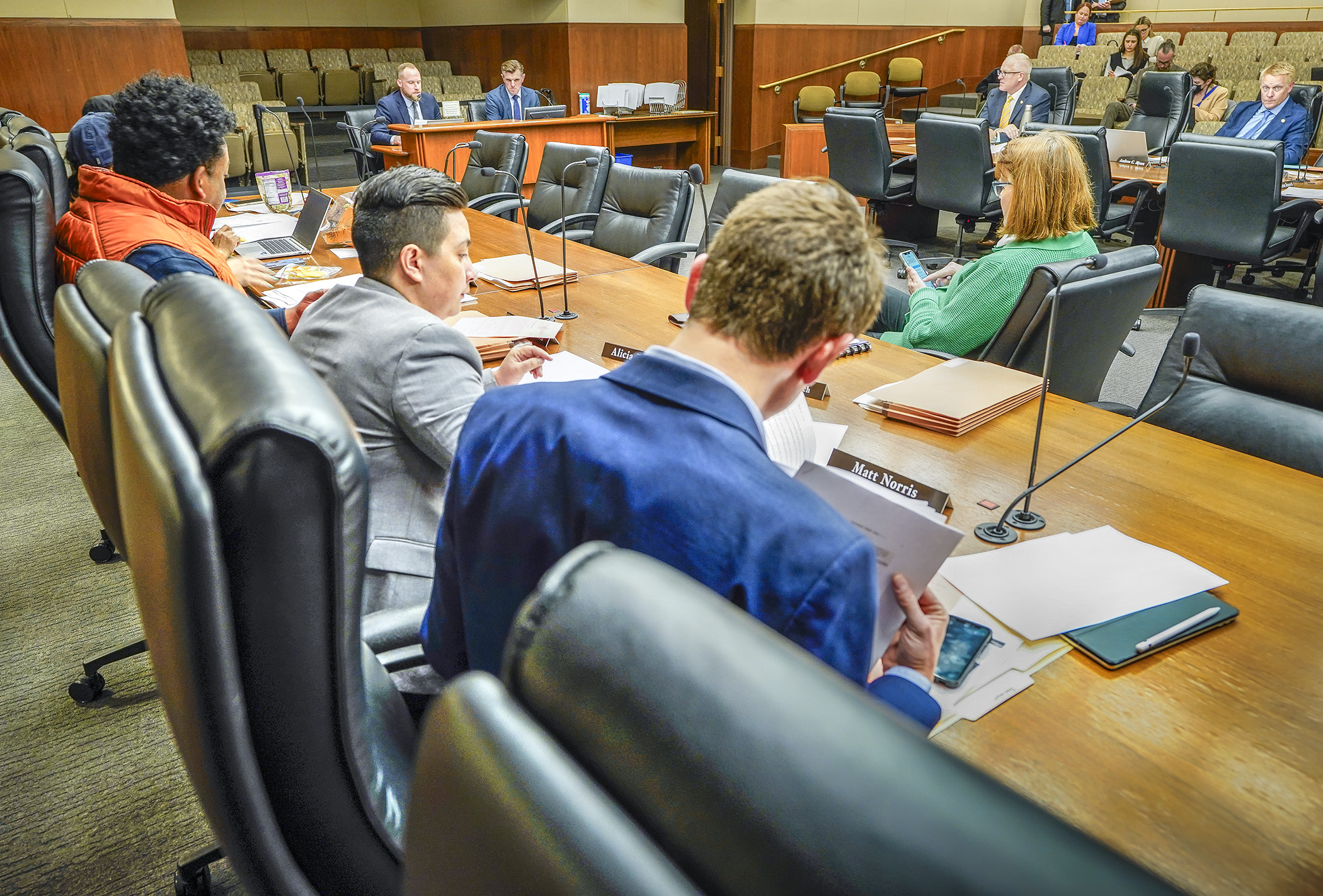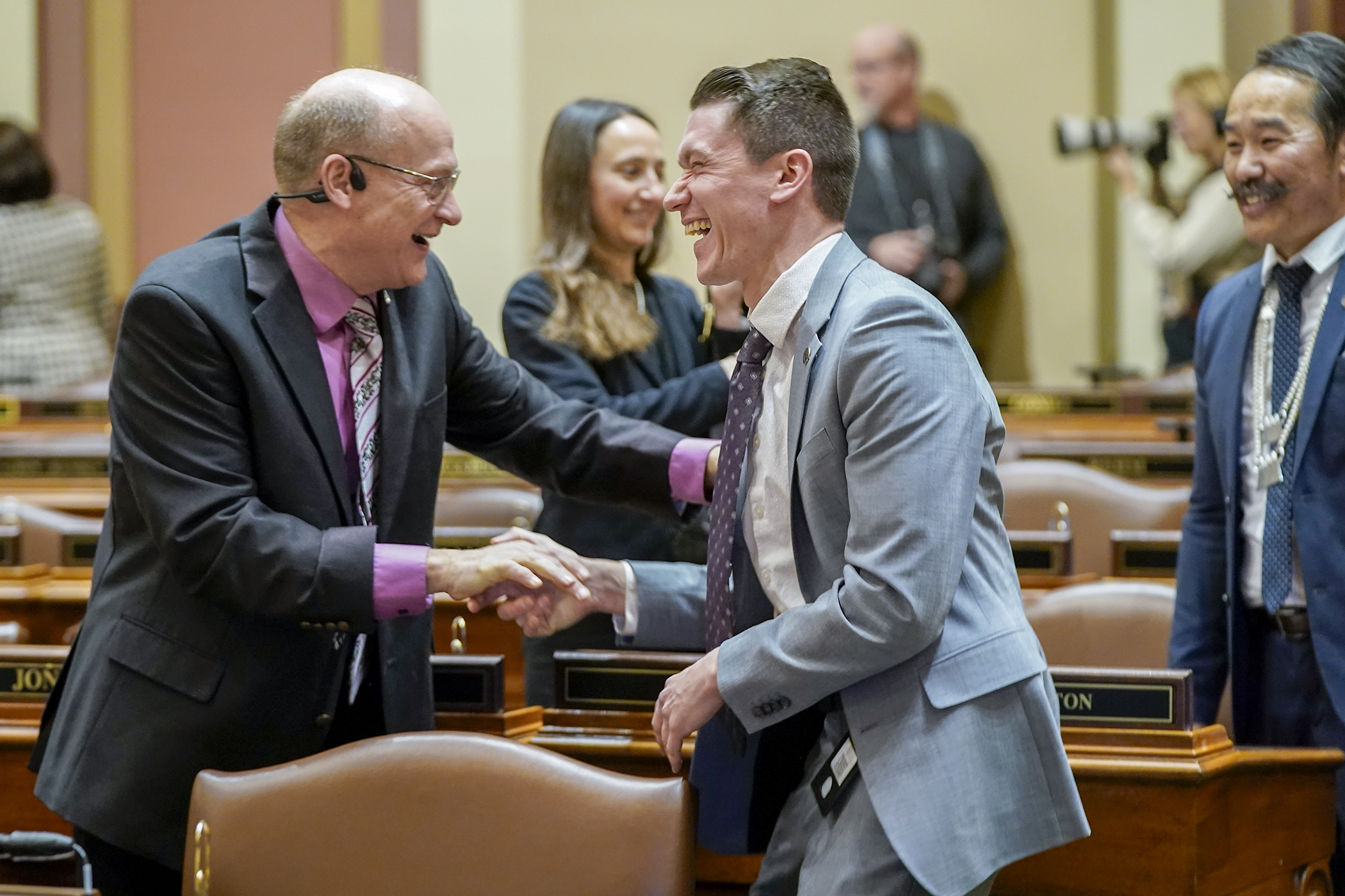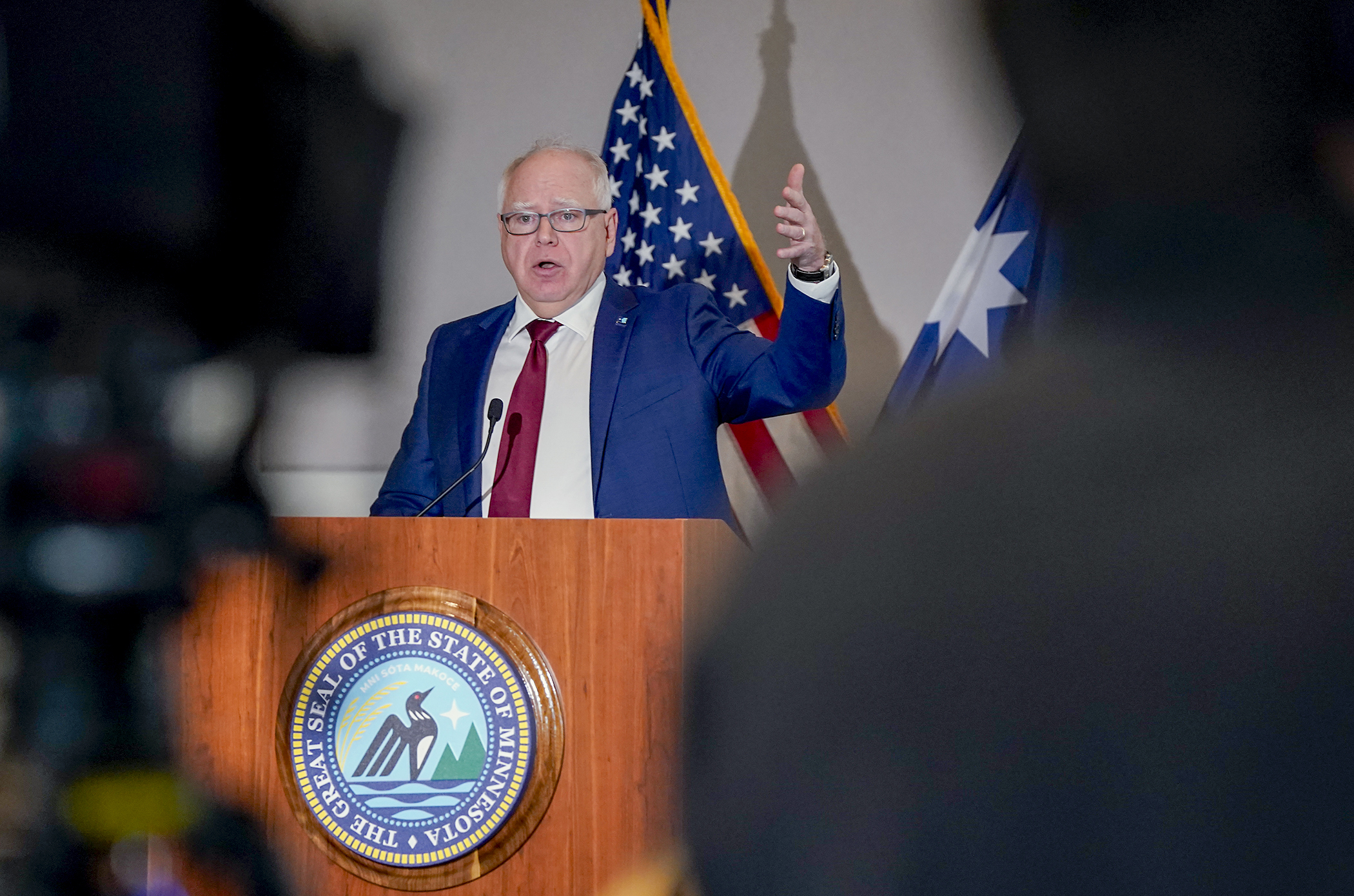Housing panel approves supplemental finance bill

Focusing on housing stability, a $10 million supplemental budget bump for housing cleared its inaugural committee.
HF4194, as amended, was approved by the House Housing Finance and Policy Committee on a split-voice vote and sent to the House Ways and Means Committee.
Two amendments from Rep. Michael Howard (DFL-Richfield), including a delete-all, were successfully added, while seven Republican amendments were rejected.
A second amendment from Howard reduced the allocations initially proposed for the Family Homelessness Prevention Assistance Program from $9.53 million to $8.95 million.
The reduction frees up $545,000 for the Supreme Court for its work on retroactively expunging rental evictions, which is allowed by statute under certain conditions.
[MORE: View the spreadsheet]
Republican amendments that failed to garner enough support would have:
- deleted a clause that limits to $7 billion the amount of outstanding general obligation bonds, excluding the principal amount of bonds and notes that have been refunded by new bonds or note;
- deleted language that would allow nonprofit entities to raise rent prices for low-income seniors, but prohibit for-profit entities from doing so;
- deleted a section aimed at preventing landlords from discriminating against renters who receive federal, state, or local government rental assistance or housing voucher programs, such as Section 8 vouchers;
- prohibited counties and municipalities from imposing fees or charges on building and development permits if the fees and charges are unrelated to the specific request;
- prohibited municipalities from charging fees for reviewing, investigating, and administering a building permit or application unless the fees and charges were expressly authorized in statute;
- removed language to limit rental increases on low-income senior housing; and
- required agencies to contact the Legislature if the implementation of any portion of a proposed rule on would increase the average cost of residential construction or remodeling by $3,000 or more per unit.
Other provisions in the bill would:
- establish a task force on long-term sustainability of affordable housing tasked with providing recommendations to the Legislature to promote sustainable, affordable housing and rental housing security. The task force would be required to assess the underlying financial challenges for affordable housing providers that aim to develop and preserve safe, affordable, dignified housing;
- create a working group to study the prevalence and impact of common interest communities and homeowners associations in Minnesota and how the existing laws regulating them help homeowners and tenants access safe and affordable housing;
- direct the Housing Finance Agency and the Department of Human Services to develop recommendations for emergency rental assistance that are simple enough for applicants to understand across all emergency rental assistance programs and that embrace culturally responsive and trauma-informed approaches;
- create a grant program to support recapitalization of distressed buildings where the units are limited to households at or below 60% of the area median income and that are in foreclosure, have two or more years of negative net operating incomes replacement and other requirements; and
- require contractors and developers seeking financial assistance from the Housing Finance Agency to disclose any conviction, court judgment, agency determination, legal settlement, ongoing criminal or civil investigation, or lawsuit involving alleged violations of law in the previous five years on their proposed construction project. The bill would also require contractors and subcontractors to pay workers statutorily required wages.
Related Articles
Search Session Daily
Advanced Search OptionsPriority Dailies
Full House convenes for first time in 2025, elects Demuth speaker
By Tim Walker DFL, Republicans convene with a quorum for the first time in 2025 session after agreeing to a power-sharing deal.
DFL, Republicans convene with a quorum for the first time in 2025 session after agreeing to a power-sharing deal.
Walz proposes slimmed-down 2026-27 state budget, sales tax changes
By Tim Walker This is an odd-numbered year, and so the Legislature is constitutionally required to craft a budget to fund the state government for the next two fiscal years.
Gov. Tim Walz...
This is an odd-numbered year, and so the Legislature is constitutionally required to craft a budget to fund the state government for the next two fiscal years.
Gov. Tim Walz...